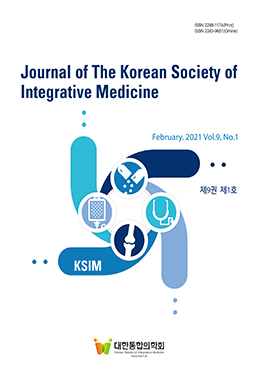Purpose : The purpose of this study is to verify the effect of selective muscle strengthening of the knee joint extensor muscles using a pressure biofeedback unit to improve knee extensor strength and the balance ability of total knee replacement patients. Through this, we tried to provide clinical information.
Methods : In this study, 12 patients with total knee replacement were recruited from a rehabilitation hospital. They were divided into two groups: a feedback group (n=6) and a control group (n=6). All patients received 30 minutes of continuous passive motion and leg-strengthening exercises for 15 minutes five times a week for two weeks. Subjects performed knee extension exercises with or without biofeedback units in the sitting position. The knee extensor strength and balance ability were measured before and after exercise. Knee extensor strength was measured by Biodex system 3 and balance ability was measured by Balancia software.
Results : Both the experimental group and the control group showed a significant difference in the muscle strength of the knee joint extensor muscles after intervention (p<.05). In comparison, the experimental group showed a significant difference than the control group (p<.05). Both the experimental group and the control group showed a significant difference in the velocity average, path length, area 95 % center of pressure (COP), weight distribution, five times sit to stand test (FTSST) after intervention. In comparison, the experimental group showed a significant difference in velocity average, area 95 % COP, and FTSST than the control group (p<.05).
Conclusion : In order to strengthen the knee extensor muscle and improve the balance ability in total knee replacement patients, it is necessary to consider providing pressure biofeedback unit during leg strengthening exercises.




